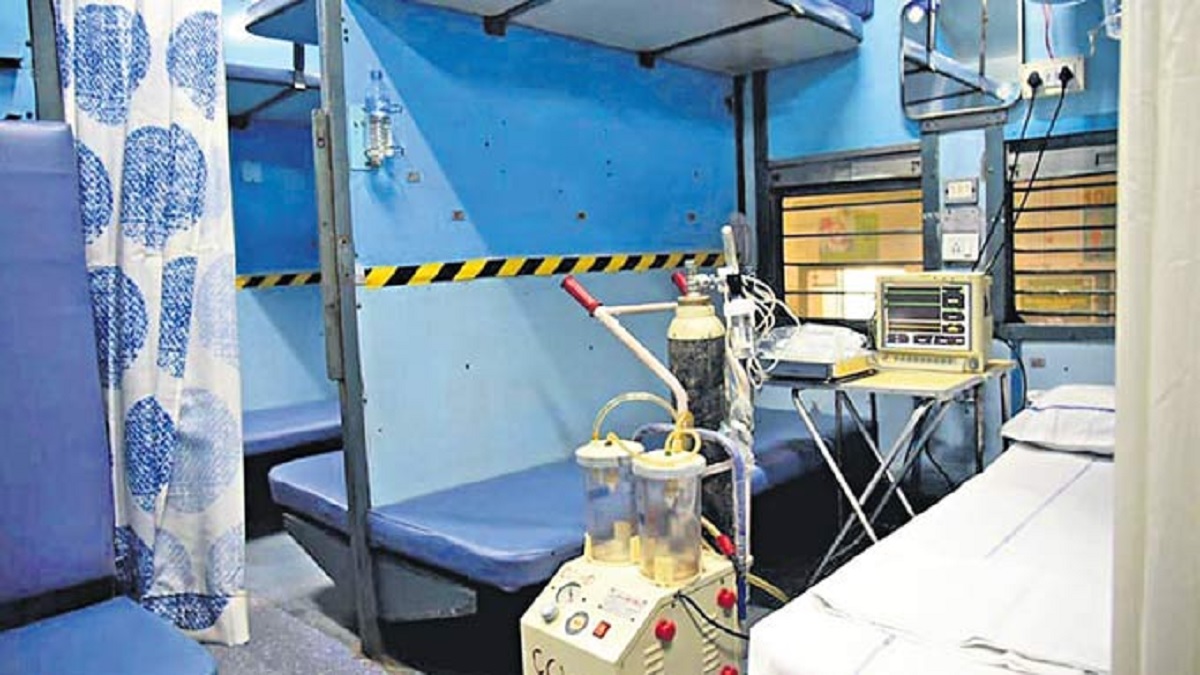


Be it during wars or natural disasters, the Indian Railways has always been at the forefront playing the role of a saviour. So, when the country is fighting Covid-19, the department is gearing up to do its bit in helping the nation. To understand the Covid-19 response of the Indian Railways, The Daily Guardian spoke to Arun Arora, who is Principal Chief Mechanical Engineer, Northern Railway.
Q. Given the vastness of the Northern Railway, what are the steps you have taken to contain the coronavirus outbreak?
A. Spread over seven states, with the workforce around 1.4 lakh, the Northern Railway is the largest zone of the country’s complex rail network. Therefore, charting out a sharp Covid-19 containment response plan was certainly a challenging task. We at the Northern Railway have adopted a philosophy to ensure the health and hygiene of every staff from top to bottom. The social distancing is being practised in all field units of the railway network. In accordance with the Ministry of Home Affairs’ guidelines, the working staff strength has been kept at around 33% across the units and offices. Sanitizers, masks, and PPEs have been provided to all staffs and the Covid-19 response team ensures that the protective gear is always used at work. We have installed innovative washbasin designs to make the process of hand-washing a completely contactless activity. Interestingly, this washbasin was designed and manufactured at the Northern Railway. All the entry and exit points in the field units are being monitored by our personnel who ensure checking of the Aarogya Setu app and thermal screening of every entrant. The locomotive cabs and guard’s brake van are being regularly sanitised before an operation. We even ensure the sanitisation of the common tools before their use.
Q. The Indian Railways’ innovative step to turn rail coaches into isolation wards has received appreciation from across the world. You were behind the rolling of this initiative. Please let us know about the contribution of the Northern Railway in implementing this initiative.
A. The Northern Railway’s Jagadhari Workshop and Rolling Stock Wing of Delhi Division pioneered the design and developed the first prototypes of the isolation coaches and later the innovation became the standard practice across the railway zones. The Northern Railway was given a target of converting 390 coaches into isolation wards for virus-infected individuals. Gladly, we converted 540 coaches into the isolation ward. You will be surprised to know that at the Northern Railway in six days we converted 390 rail coaches into isolation wards. In the next phase, we added 150 more isolation wards which was converted in only two days. For your reader’s information, the total number of such isolation wards made by the Indian Railway are 5,150.
Q. You are closely associated with the functioning of rail coach isolation wards. How do they function?
A. Each rail coach isolation ward is designed for the use of 8-16 Covid-19 patients. The facilities installed in these wards include oxygen supply cylinders, Indian-style lavatory-cum-bathroom, medical curtain, medical equipment like bottle holders, contactless dustbins with garbage segregation options, mobile charging points, mosquito nets, besides other facilities needed for the operation of a hospital ward.
Q. How is the Northern Railway helping states in the return of their stranded migrants?
A. It’s a coordinated effort that is being taken as per the orders of the Ministry of Home Affairs and the Ministry of Railways.
Q. You at the Northern Railway have started mass in-house production of PPEs, sanitisers, and face masks. Who are the end-users of these Covid protection gears?
A. The end-users of our PPEs are frontline staff, civil authorities, paramedics, and doctors assigned to Northern Railway hospitals providing assistance to Covid-19 patients. Besides, our staffs, the RWAs, IITDelhi, and several government departments have also requested us for the supply of PPEs. When the shortage of PPEs in the country was observed, the Northern Railway workshop at Jagadhri came upfront in the development DRDO-approved PPEs. As on May 2, our workshops have manufactured around 6,600 litre of sanitisers, 56,000 washable three-ply face masks, 15,000 PPEs at almost half the market price. We have also developed the prototypes of contactless washbasin which work with the mechanical linkage and allow people to wash their hands without touching the taps. With the installation of these washbasins, we have taken a step towards improving the hygiene standards of our staff. The Northern Railway workshops have already ramped up the production scale to 1,500 PPEs per day and the network aims to supply 55,000 PPEs by the end of this month. I would like to add that the role of our two workshops– Alambagh and Charbagh—and their staff are commendable. Alambagh workshop took the initiative of making prototype mixture of sanitiser and got approval from an NABL-accredited lab, while the Charbagh workshop got licence from the Food and Drug Administration (FDA) along with excise license to procure alcohol from sugarcane distilleries for in-house manufacturing.
Q. Tell us how the Northern Railway has managed smooth operation of freight trains and subsequently the supply chains?
A. In order to ensure continuity in the supply chain of essential food grains, commodities, and medical supplies across states, the Northern Railway started running time-tabled parcel trains and freight operations to match the demand. During the lockdown, we operated 170 timetabled parcel special freight trains to transport medical equipment and essential commodities. We also allowed operation of 117 “long hauls” thereby enhancing the capacity per rake to thrice of that of the conventional rakes, maximising the utilisation of line capacity and minimising the requirement of line crew, to transport food grains, coal, etc. Moreover, to ensure the availability of workforce at field units, “workmen specials” are operational for providing commuting facilities to our staff amid the lockdown. Rolling stock depots have functioned round the clock to maintain rolling stock required for running these trains.